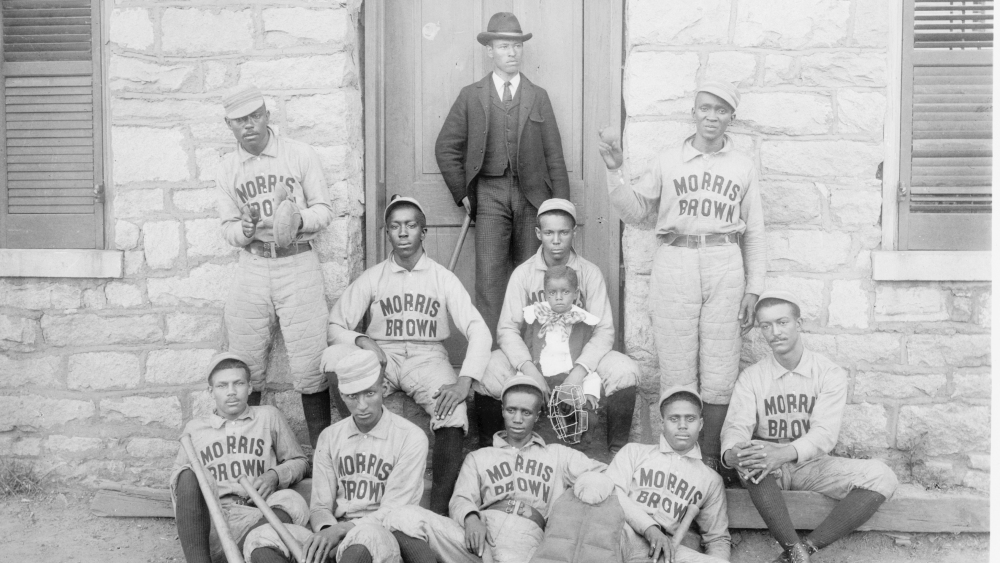
Sam Pollard’s “The League” Is Not Your Typical Baseball Doc.
The documentary filmmaker grew up in the 1960s watching the St. Louis Cardinals, whose roster of players included Black or Latino players including Bill White, Curt Flood, Orlando Cepeda and Lou Brock, but did not know much about the Negro Leagues that existed when the sport was still segregated.
“I knew who Jackie Robinson was and that it was because of him Blacks had integrated the Major Leagues in 1947,” says Pollard. “But what I did not know much about in 1964 at the age of 14 was that he had come out of the Negro Leagues and that the Negro Leagues had been home to Black and Latino ballplayers who had to play segregated baseball during the height of the Jim Crow era.”
While some segregation in the sport always existed, the color line in baseball was not rigidly enforced until the end of the 19th century.
What Pollard also did not know back in 1964 was that close to 60 years later he would direct “The League,” a documentary about the rich legacy of the Negro Leagues.
Executive produced by Oscar winning doc director Ahmir “Questlove” Thompson (“Summer of Soul”), Tariq Trotter (“Descendant”), and produced by RadicalMedia, “The League” recounts the rise and fall of the Negro Leagues and the impact that African American baseball had not only on Major League Baseball as we now know it, but also its impact on the social advancement of America.
Released on July 7 by Magnolia Pictures & 2929 Productions, “The League” is a story about not just baseball, but exclusion and self-determination.
Variety spoke to Pollard about his vision for the film, the Negro League’s ongoing influence and what the doc is really about.
Did Questlove and Radical Media bring this film to you?
Byron Motley whose dad, Bob Motley, was a Negro League umpire, reached out to me about 10 years ago. He asked if I would be interested in directing a doc about his dad and his dad’s role in Negro Leagues. I said, ‘Yes. Absolutely.’ We went through the whole dance of trying to find funders, and raise money with no success. Finally, and I don’t know how it worked out, if we went to Radical and Quest or if Quest went to Radical, but eventually they all got on board. That was about three years ago.
In addition to captivating archival footage, talking heads and recordings made of many former players, you relied on reenactments and animation to tell the story. Was that always part of the plan?
We knew we were going to do recreations because initially I thought we weren’t going to have enough archival footage necessary to make (the film) happen. So recreations were always on the table. Animation came later. Every film that I approach, I’m always trying to figure out aesthetically and cinematically how to make it different than the one before.
The doc describes white baseball during the time of the Negro League as a “station to station game.” They didn’t steal bases or bunt balls. On the other hand, Black baseball players were aggressive and daring. Would you say that the Negro League directly influenced how the game of baseball is played today?
Look at American sports — football, basketball, baseball. Anytime Black people became parts of those games, what happened to those sports? The energy, the approach to athleticism changes. When Willie Mays, Hank Aaron, Ernie Banks, Larry Doby and Jackie Robinson came to National Major League baseball, they brought with them the Black athletic aesthetic. What does that mean? That means the way they ran bases, bunt and steel, etc.
Would you say that “The League” is a baseball doc or a film about America and race?
It’s about America and race. All of my films are about America and race. It’s just about what funnel am telling that story through. Is it through the funnel of Sammy Davis Jr.? (“Sammy Davis Jr.: I’ve Gotta Be Me”). Is it through the funnel of Dr. King dealing with the FBI and how they were trying to destroy him? (“MLK/FBI”). Is it through the funnel of Bill Russell being a member of the Boston Celtics at the height of civil rights movement? (“Bill Russell: Legend”). Is it through the Negro League evolution up until what happens in Negro League and Jackie Robinson joins the MLB? It’s always about American and race.
What do you think audiences will be most surprised to learn after watching “The League”?
That are going to be surprised that the Negro Leagues helped the Black communities in America survive during the horrific period of Jim Crow segregation. They are also going to learn that there were some phenomenal human beings who were players in that league. Two of the major standouts are Satchel Paige and Josh Gibson.













